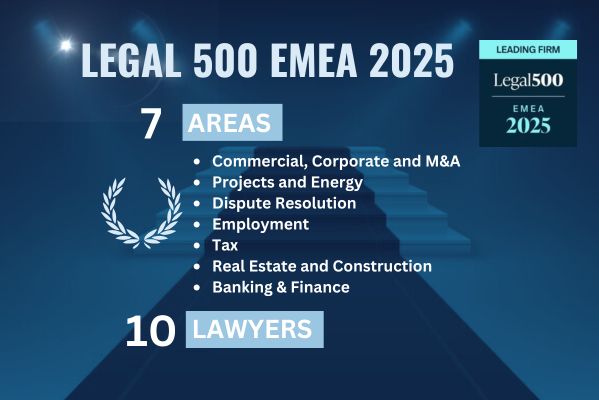On 30 January 2020 the World Health Organization (WHO) declared that COVID-19 involved a public health emergency of international importance. As a result of this crisis being increased, Spain, among other states, has taken certain measures restricting the freedom of movement of their citizens, limiting or restricting the entry of travellers from countries with outbreaks of COVID-19, and adopting various types of provisions, in order to protect the health of citizens and mitigate, as far as possible, the economic consequences of this situation. Further, on 11 March, WHO confirmed that the COVID-19 outbreak had become a pandemic.
On Saturday 14 March 2020, the declaration of the state of alarm was published in the Spanish Official Gazette as a response to the public health crisis caused by COVID-19.
This situation has been addressed in Spain with the approval of, among others:
- Royal Decree 463/2020 of 14 March, which declared a state of alarm for the management of the health crisis caused by COVID-19 (“RD 463/2020”), as well as subsequent Royal Decrees extending the state of alarm;
- Royal Decree-Law 8/2020 of 17 March, on urgent extraordinary measures to deal with the economic and social impact of COVID-19 (“RDL 8/2020”);
- Royal Decree-Law 9/2020 of 27 March, which adopts complementary measures in the field of employment to mitigate the effects of COVID-19 (“RDL 9/2020”);
- Royal Decree Law 10/2020 of 29 March, regulating recoverable paid leave for employees who do not provide essential services, in order to reduce population mobility in the context of the fight against COVID-19 (“RDL 10/2020”);
- Royal Decree-Law 11/2020 of 31 March, which adopts additional urgent measures in the social and economic sphere to address COVID-19 (“RDL 11/2020”);
- Royal Decree-Law 15/2020 of 21 April, of urgent complementary measures to support economy and employment (“RDL 15/2020”);
- Royal Decree-Law 16/2020, of 28 April, on procedural and organizational measures relating to COVID-19 in the field of the Administration of Justice (“RDL 16/2020”); and
- Royal Decree Law 19/2020, of 26 May, on supplementary measures in the agricultural, scientific, economic, employment and social security and tax areas to mitigate the effects of COVID-19 (“RDL 19/2020”).
Hereinafter, we analyze the measures adopted by the these Royal Decree-laws and how they have affected the different legal areas.
CORPORATE
In accordance with paragraphs thirteen and fourteen of the First Final Provision of RDL 11/2020, some of the measures that were adopted by RDL 8/2020 have been modified (in particular, Articles 40 and 41).
Managing body
- It is stated that the meetings of the managing body and other committees may be held by videoconference or by multiple telephone conference, provided that all the members of the body have the necessary means and the secretary of the body acknowledges their identity and states so in the minutes.
Drawing up and approval of the annual accounts
- The drawing up of the annual accounts by the managing or administrative body of a legal entity during the state of alarm will be considered valid, without prejudice to the possibility of benefiting from the extension provided for in RDL 8/2020.
- In accordance with the amendment introduced by RDL 19/2020, the obligation of drawing up the financial statements, ordinary or abbreviated, individual or consolidated (and, when applicable, the management report and other documents required under corporate law) within three months from the end of the financial year, is suspended until 1 June 2020. From that date, the time limit will be resumed for another three months.
- From the end of this period for drawing up the annual accounts, the general meeting shall necessarily meet within two months for approving the financial statements of the previous financial year.
- The two-month extension of the period for the verification of the annual accounts already prepared will apply, with the new wording, both for those companies subject to mandatory audit and for those subject to voluntary audit.
Proposed application of the result
- The companies that had drawn up their annual accounts may call an ordinary general meeting as from the entry into force of RDL 11/2020, in which they may replace the proposed application of the result contained in the report with another proposal.
- However, the managing body must justify that the replacement of the proposal for the application of the result is given by the consequences of COVID-19 and, in addition, it must be accompanied by a letter from the auditor stating that he would not have changed his audit opinion if he had known about the new proposal when he signed it.
Applicable measures to listed companies
RDL 8/2020 (in its Article 41) adopted certain exceptional measures applicable to companies with securities admitted to trading on a regulated market in the EU. With respect to these measures, RDL 11/2020 specifies that:
- When listed companies apply any of the measures contained in Article 40.6 bis of RDL 8/2020, the new proposal, its justification by the managing body and the auditor’s statement must be made public, as soon as they are approved, as supplementary information to the annual accounts on the company’s website and on the website of the CNMV as other relevant information or as privileged information, if required.
- In addition, Article 12 of RDL 19/2020 establishes that Corporate Tax contributors for which the deadline for the formulation and approval of the financial statements for the year is in accordance with the provisions of Articles 40 and 41 of RDL 8/2020, shall submit the report of the Corporate Tax for the tax period corresponding to that year within the period specified in Article 124(1) of the Corporation Tax Act. If, at the end of this period, the financial statements have not been approved, the tax report shall be made with the latest available financial statements.
BANKING AND FINANCE
The mortgage moratorium
Article 16 of RDL 11/2020 establishes certain clarifications on the definition of economic vulnerability to the effects of the mortgage moratorium and non-mortgage financing credit, with respect to the definition already provided in RDL 8/2020. In particular, the criteria for assessing economic vulnerability that have been modified are as follows:
- That the potential beneficiary becomes unemployed or, in the case of employers or professionals, suffers a substantial loss of income or a substantial drop in turnover (at least 40%).
In this sense, RDL 8/2020 referred to “sales” and not “turnover”.
- That the total income of the members of the family unit does not exceed, in the month prior to the application for the moratorium, a multiple of the Public Multiple Effect Income Indicator (IPREM) and adjusted according to certain particular cases.
- That the total of the mortgage payments for the real estate referred to in Article 19 (to which we will refer later), plus basic expenses and supplies is greater than or equal to 35 % of the net income received by all the members of the family unit.
In the wording given by RDL 8/2020, reference was made to “the mortgage payment”; the new wording provides for the possibility of the mortgage moratorium on several payments. It also establishes a definition of what are considered basic supplies for these purposes.
- That, as a result of the health emergency, the family unit has suffered a significant alteration in its economic circumstances in terms of efforts to access housing. The significant alteration will be considered to have taken place when the total of the mortgage charge, understood as the sum of the mortgage payments of the real estate referred to in Article 19 on the family income has been multiplied by at least 1.3.
- Notwithstanding the above criteria, Article 18 RDL 11/2020 establishes certain specialties for credit agreements without a mortgage guarantee in relation to the criteria established to determine a situation of economic vulnerability.
In addition, Article 19 of RDL 11/2020 establishes that the mortgage debt or loans referred to in Articles 7 to 16 ter of RDL 8/2020 will be those contracted for the acquisition of, in addition to the habitual residence:
- Properties affected by the economic activity developed by entrepreneurs and professionals who suffer a substantial loss of income or a substantial drop in turnover of at least 40%.
- Dwellings other than the usual one in a rental situation and for which the mortgage debtor, individual, owner and lessor of said dwellings, has ceased to receive the rental income since the entry into force of the state of alarm decreed by Royal Decree 463/2020, of 14 March, or ceases to receive it until one month after the end of the same.
Suspension of obligations arising from non-mortgage credit agreements
Articles 21 et seq. of RDL 11/2020 establish the measures and procedures for the temporary suspension of contractual obligations arising from any loan or credit without a mortgage guarantee, provided that the credit was contracted by an individual in a situation of economic vulnerability, in accordance with the abovementioned criteria and provided for in RDL 8/2020 and RDL 11/2020. In addition, and in accordance with the amendment introduced by RDL 19/2020, leasing agreements will be considered as part of the scope of these measures.
These measures will also be applicable to the principal debtor’s guarantors and guarantors in the same circumstances, who may also require the creditor to exhaust the principal debtor’s assets before claiming the guaranteed debt from them (Article 42 of RDL 11/2020).
Thus, in accordance with the provisions of Article 23 of RDL 11/2020, debtors who are in a situation of economic vulnerability may request from their creditor the suspension of the obligations derived from the credit agreements without mortgage guarantee.
Once the request for suspension has been made, and provided that the situation of economic vulnerability has been proven, the creditor must proceed to the automatic suspension of the obligations arising from such credits.
Notwithstanding the consequences of the debtor’s fraudulent behavior, as provided for in Article 26 of RDL 11/2020, Article 25 refers to the effects of the suspension, which are:
- The creditor may not demand payment of the instalment, or of any of the items that integrate it (amortization of the capital or payment of interest), either in full or in part.
- No interest of any kind shall be due, neither ordinary, nor moratorium.
- The expiry date of the contract will be extended for the duration of the suspension.
When the lender and the borrower benefiting from the moratorium agree on a novation, as a consequence of the modification of the contract’s clauses in aspects other than the suspension referred to in Article 13 of RDL 8/2020, the suspension of the contractual obligations must be included, as well as the non-accrual of interest during the validity of the suspension.
- The deadline for this request will be up to one month and 15 days after the end of the state of alarm.
- The term of the suspension shall be three months and may be extended by agreement of the Spanish Council of Ministers.
Finally, we must point out that, through paragraphs two to seven of the First Final Provision, a large part of the measures referred to in this paragraph are introduced into RDL 8/2020, through amendments to Articles 7 to 16.
Unilateral execution by the creditor entity of the notarial instruments in which the extension of the term derived from the moratorium must be formalized
Additional Provision Fifteen of RDL 15/2020 provides establishes the unilateral execution by the creditor of the notarial instruments formalizing the extension of the term resulting from the legal moratorium on loans or credits secured by mortgage or by another registrable right.
In particular, the following unilateral obligations of the creditor entity are established that:
- notarization (elevación a escritura pública) of the acknowledge of the suspension provided for in Article 13.3 of RDL 8/2020, in order to proceed with the registration of the extension of the initial period in the Property Registry.
- to promote the formalization of the policy or public deed (póliza or escritura pública) documenting the recognition of the suspension of contractual obligations in credits or loans without mortgage guarantee provided for in Article 24.2 of RDL 11/2020 and the registration, if applicable, in the Land Registry.
Moratoriums on loans and credits agreed within the framework of Sectoral Agreements of financial institutions
Complementary to the system of mandatory moratoriums provided for by RDL 8/2020 and RDL 11/2020, RDL 19/2020 establishes, in Articles 6 to 8, a sectoral framework of conventional modifications (extensions) of loans and credits.
Thus, conventional moratoria entered between the debtor and his financial institution based on a Sectoral Framework Agreement may cover all types of loans, credits and leasings.
Without prejudice to accrual of interest agreed in the original loan agreement, this conventional moratorium may establish the deferral payment to be paid by:
- redistributing the instalments without changing the maturity, or
- extending the maturity by several months equivalent to the duration of the moratorium.
Furthermore, Article 7 (3) of RDL 19/2020 prevents the use of the conventional moratorium from establishing new conditions in the loan agreements, such as the commercialisation of new products or the requirement of new guarantees. The interest rate cannot be amended either.
In addition, Article 7 (4) of RDL 19/2020 states that in the case of an individual in a situation of special vulnerability, the terms provided for in this moratorium will apply complementarily and will be subsequent to those established in the mortgage and non-mortgage moratorium set forth above.
That is, the conditions of both moratoriums shall be applied by way of successive, so that during the period of three months provided for in Article 14 of RDL 11/2020 no ordinary interest or moratorium will be accrued.
Finally, following the provisions of RDL 15/2020, Article 8 of RDL 19 establishes an exceptional regime for the granting of notarial instruments in which the conventional moratoriums agreed under one of the Sectoral Agreements shall be notarized. In this regard, one of the measures set forth in the RDL 19/2020 is the unilateral granting of the deeds by the creditor entities. To the extent that the established regime aims to speed up the notarization of the moratorium agreements, the Sole Derogatory Provision of RDL 19/2020 removes the prohibition on the execution of moratorium deeds previously provided for in Article 16 (ter) of RDL 8/2020.
Grants from the P.E. Instituto para la Diversificación y Ahorro de la Energía (IDAE), under the loan form
Article 6 of RDL 15/2020 establishes the possibility that the beneficiaries of grants programs or reimbursable aids granted by the IDAE[1] , formalized in the form of loans, and who have been adversely affected by the situation of COVID-19, may benefit from deferral of the repayments of the loans taken out, provided that these borrowers are not in a situation of bankruptcy and are up to date with all their obligations to the Treasury and the Social Security.
The conditions for this deferral are as follows:
- In accordance with the provisions of this Article 6, any outstanding contributions due or payable in March, April, May and June 2020 may be deferred.
- Furthermore, the deferment shall be automatically extended to successive instalments, unless the interested party expressly requests otherwise, until two months after the end of the state of alarm.
- The deferred instalments must be paid before the end of the term of the respective loan, and cannot be understood to be capitalized and, therefore, accrue new ordinary interests.
- As regards to the requirements for the deferment to be granted, the interested party must issue a responsible statement declaring, at the time of requesting the corresponding deferment, that they are in an unfavourable economic situation as a result of the health emergency caused by the COVID-19, which has led to periods of inactivity or reduction in the volume of sales or turnover which prevents or makes it difficult for them to meet their repayment obligations. In addition, the instalments subject to deferral will not have been subject to previous deferral or splitting, nor will they have been claimed in or out of court by the IDAE.
INSOLVENCY AND BANKRUPTCY
The Fourth Transitional Provision of RDL 11/2020 contains two references to the measures already provided for in RDL 8/2020. In particular:
- It is established that, on the date of entry into force of RDL 11/2020, should a court order had been issued by the judge of the bankruptcy proceeding ruling the application of the measures provided for in RDL 8/2020, the court decision will have full effect for the recognition of the benefits provided for in the RDL 11/2020.
- Applications in which no decision has been made by the bankruptcy proceeding judge must be sent to the labor authority and will be processed according to the procedure and with the stipulations provided for in Articles 22 and 23 of RDL 8/2020.
Furthermore, paragraph sixteen of the First Additional Provision of RDL 11/2020 introduces the Tenth Additional Provision (“Stipulations in application of Chapter II to the companies in bankruptcy proceedings”) of RDL 8/2020, so that the companies in bankruptcy proceedings may have access to the measures in order to relax the mechanisms of temporary adjustment of activity to avoid dismissals, provided that they meet the requirements established in the same RDL 11/2020.
In addition, RDL 16/2020 has introduced a series of measures aimed at avoiding and delaying bankruptcy proceedings as much as possible. In particular:
- Firstly, Article 10 of RDL 16/2020 establishes the possibility of renegotiating already approved bankruptcy agreements with creditors during the year following the declaration of the state of alarm, as well as refinancing agreements already approved.
- Furthermore, in accordance with Article 11 RDL 16/2020, there will be no obligation to apply for the declaration of voluntary bankruptcy proceedings until 31 December 2020, even if the company is in one of the cases provided for by law. Furthermore, in accordance with the same Article, applications for necessary insolvency proceedings (i.e. those required by creditors) will not be accepted until 31 December and, if there is an application for voluntary insolvency proceedings before 31 December 2020, the latter will have preference.
- Article 12 of RDL 16/2020 establishes that loans or credits to the bankruptcy treasury, granted within two years of the state of alarm by individuals especially linked to the bankrupt, will be considered ordinary credits and not subordinate credits.
- Article 15 of the RDL 16/2020 promotes the disposal of the assets through extra-judicial procedures, even if the liquidation plan establishes otherwise, except for the disposal of the entire company or one or more productive units. In such cases, it may be carried out by judicial or extra-judicial auction or by any other means authorized by the bankruptcy judge.
- Finally, Article 18 of RDL 16/2020 determines that losses incurred in the year 2020 will not be considered in determining the concurrence of the cause for dissolution provided for in Article 363.1.e) of the Spanish Corporate Act (Ley de Sociedades de Capital). RESTRICTIONS ON FOREIGN INVESTMENT
The Third Final Provision of RDL 11/2020 modifies the foreign investment regime (Spanish Law 19/2003), previously modified by RDL 8/2020, suspending the liberalization of certain foreign direct investments in Spain.
In particular, this amendment extends the scope of the suspension of the regime of liberalization of certain foreign direct investments in Spain in the main strategic sectors, so that it is also extended to those made by investors resident in the European Union and the European Free Trade Association countries, when such investors are controlled by entities resident outside those areas.
In accordance with the new wording of Article 7.1.bis of Spanish Law 19/2003, foreign direct investments in Spain will be considered to be all those investments as a result of which the investor holds a stake equal to or greater than 10 percent of the share capital of the Spanish company, or when as a result of the corporate operation, act or legal business, the investor effectively participates in the management or control of said company, provided that one of these circumstances occurs:
- That are carried out by residents of countries outside the European Union and the European Free Trade Association.
- That are carried out by residents of European Union or European Free Trade Association countries whose real ownership corresponds to residents of countries outside the European Union and the European Free Trade Association. It will be understood that such real ownership exists if the latter own or ultimately control, directly or indirectly, a percentage of more than 25% of the capital or voting rights of the investor, or when by other means they exercise control, directly or indirectly, over the investor.
In addition, the Second Transitional Provision of RDL 11/2020 introduces amendments to Law 19/2003, in order to streamline the procedure for processing and resolving certain requests for prior authorization of foreign investments, introducing a transitional procedural regime for operations already in progress when the new Article 7 bis of Law 19/2003 came into force and for those amounting to between 1 and 5 million euros, exempting from the need for prior authorization operations of less than 1 million euros.
REAL ESTATE
Moratorium on rental debt for the use of the ordinary residence
RDL 11/2020 (Articles 3 to 9) establishes the measures leading to a moratorium on rental debt for tenants of permanent housing in a situation of economic vulnerability – under the terms of the decree itself – as a result of COVID-19.
Article 4 of RDL 11/2020 provides for the automatic application of the moratorium on rental debt in the case of large holders and public housing companies or entities, on rental contracts subject to the 1994 Spanish Urban Leases Act.
Provided that the parties have not voluntarily agreed to the total or partial postponement or forgiveness of rent, the tenant may request the landlord to temporarily and extraordinarily defer payment of the rent, provided that the landlord is a public housing company or entity or a large holder, within one month of the entry into force of RDL 11/2020.
For these purposes, in accordance with said Article 4 of RDL 11/2020, a large dwelling is understood to be an individual or legal entity that owns more than ten urban properties, excluding garages and storage rooms, or a constructed area of more than 1,500 square meters.
In the event that the voluntary agreement referred to above has not been reached, the lessor must inform the lessee within 7 working days of one of the following alternatives:
- A 50% reduction in rent for the duration of the state of alarm and the following monthly payments, with a maximum of four months.
- A moratorium on the payment of rent that will be applied automatically and that will affect the period that the state of alarm lasts, up to a maximum of four months. Said rent will be deferred, as of the next monthly rental payment, by means of the instalment of the quotas for at least three years, counting from the moment in which the aforementioned situation is overcome, or from the end of the aforementioned four-month period.
In this case, the tenant will not have any kind of penalty and the deferred amounts will be returned to the landlord without interests.
Article 5.1 of RDL 11/2020 establishes the criteria for determining when the debtor is in a situation of vulnerability, which must be proven in accordance with the criteria established in Article 6 of the same Royal Decree-Law:
- That the person who is obliged to pay the rental income becomes unemployed, Temporary Employment Regulation File (ERTE), or has reduced his or her working hours due to care, in the case of an employer, or other similar circumstances involving a substantial loss of income.
- That the total income of the members of the family unit does not exceed, in the month prior to the application of the moratorium, a certain multiple of the monthly Public Multiple Effect Income Indicator (IPREM), determined in RDL 11/2020, depending on certain circumstances of the family unit.
- That the mortgage fee, plus basic expenses and supplies, is greater than or equal to 35 percent of the net income received by all members of the family unit.
- That, as a result of the health emergency, the family unit has suffered a significant alteration in its economic circumstances in terms of efforts to access housing, in accordance with the terms of RDL 8/2020.
Debtors who can benefit from the moratorium in accordance with the provisions of the previous sections may request it from their creditor entity until one month after the entry into force of RDL 11/2020.
Those who benefit from the measures without fulfilling the requirements, in accordance with Article 7 of RDL 11/2020, will be responsible for the damages produced and the expenses generated, without prejudice to other responsibilities of different nature.
Likewise, tenants of permanent housing contracts signed under 1994 Spanish Urban Leases Act who are in a situation of economic vulnerability, as defined in Article 5, may apply to the lessor, when the latter is not one of those included in Article 4 (companies, large holders or public entities), within one month of the entry into force of RDL 11/2020, the temporary and extraordinary postponement of the payment of the rent, provided that such postponement or the total or partial remission of the rent had not been previously agreed upon by both parties on a voluntary basis. The lessor must reply within 7 working days to the conditions of the postponement or instalment that he accepts or propose other alternatives. If no agreement is reached and the lessor is in a situation of vulnerability as set out in RDL 11/2020, he may have access to the transitional financing aid program provided for in Article 9 of RDL 11/2020.
Finally, Article 9 RDL 11/2020 sets out the approval of a guarantee line to be covered by the State, by agreement with the Official Credit Institute (Instituto Oficial de Crédito), for the financing of tenants in a situation of social and economic vulnerability, the maximum amount of which, in accordance with Additional Provision Three of RDL 15/2020, is set at 1,200 million euros.
Moratorium on non-housing lease debt
RDL 15/2020 (arts. 1 to 5) establishes the moratorium on lease contracts for use other than housing, provided that the requirements set out in Article 3 are proved in accordance with the criteria established in Article 4. Thus, in order to access the measures established therein, in accordance with Article 3 of RDL 15/2020, the tenant must be a small or medium sized enterprise or self-employed who meets the following requirements:
- In the case of a lease contract of a property relating to the economic activity carried out by the self-employed:
- they must be affiliated to and registered with the Special Social Security Regime for Self-Employed Workers (Régimen Especial de la Seguridad Social de los Trabajadores por Cuenta Propia) or the Special Social Security Regime for Seafarers (Régimen Especial de la Seguridad Social de los Trabajadores del Mar) or, where applicable, one of the RETA’s substitute mutual insurance companies.
- In addition, the activity of the self-employed must have been suspended as a result of the state of alarm and, if this is not the case, a 75% decrease in the average monthly turnover must be proved.
- In the case of a property lease contract affecting the economic activity carried out by an SME:
- it is necessary not to exceed the limits established in Article 257.1 of the Spanish Corporate Act (Ley de Sociedades de Capital) (i.e. assets not exceeding 4 million euros, net turnover not exceeding 8 million euros and less than 50 employees).
- in addition, the activity of the SME must have been suspended as a result of the state of alarm and, if this is not the case, a 75% decrease in average monthly turnover must be proved.
If these requirements are proved in accordance with the provisions of Article 4, the self-employed and SMEs may apply for a moratorium on their leases for use other than housing. A distinction is made according to the status of the large holder of the lessor:
- in accordance with article 1 of RDL 15/2020, if the lessor is a company or public housing entity, or a large holder[2], the moratorium can be requested within one month of the entry into force of RDL 15/2020. In this case, the moratorium will apply automatically and will affect the period that the state of alarm lasts and its extensions, but not exceeding four months in any event. The rent will be deferred, without accruing interest, by means of the instalment payment within two years.
- in the event that the lessor is not one of those referred to in the previous paragraph, Article 2 states that the moratorium may also be requested within one month from its entry into force, for the temporary and extraordinary deferment of the payment of rent, and for this purpose, the rental deposit may be used.
[1] Excluding administrations and public entities from the state, regions (comunidades autónomas) and local public sector, as well as their related or dependent public managements and entities.
[2] The definition for these purposes is the same as that already mentioned for rentals of ordinary residence.





